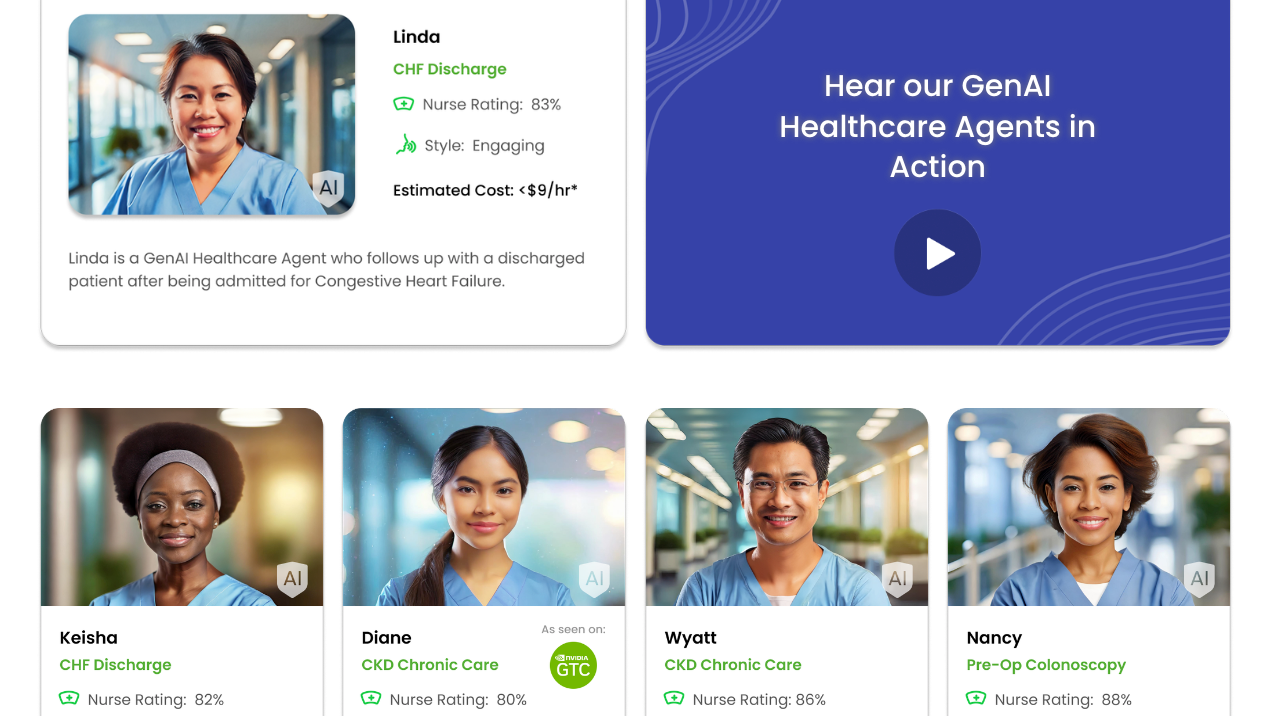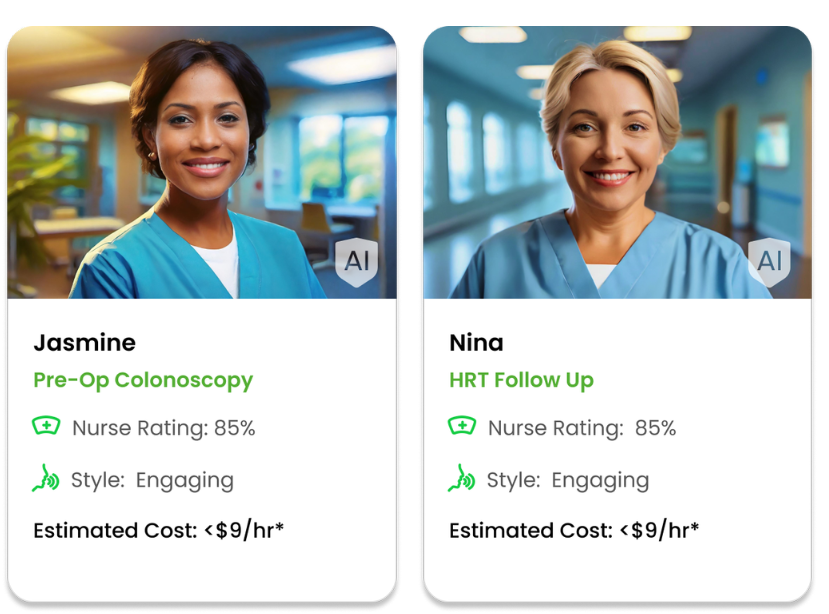
In a move that has sparked both intrigue and controversy, tech giant Nvidia announced a collaboration with Hippocratic AI, a healthcare company offering generative AI nurses at the startlingly low cost of $9 per hour. This partnership aims to integrate Nvidia’s cutting-edge technology into Hippocratic’s real-time AI agents, which provide medical advice to patients over video calls, potentially disrupting the traditional healthcare landscape.
Hippocratic AI is boldly promoting its generative AI nurses as a cost-effective alternative to human healthcare professionals, whose hourly rates can reach upwards of $90. The company’s value proposition lies in its ability to offer round-the-clock medical guidance through AI agents at a fraction of the cost.
“Voice-based digital agents powered by generative AI can usher in an age of abundance in healthcare, but only if the technology responds to patients as a human would,” said Kimberly Powell, vice president of Healthcare at NVIDIA, highlighting the potential of this collaboration.
Introducing Rachel: The AI Nurse Assistant
In a demo released by Nvidia, an AI agent named Rachel showcases the capabilities of these generative AI nurses. With a semi-human appearance, Rachel verbally instructs a patient on how to take penicillin, subsequently informing them that all the information will be relayed to their human doctor. Rachel is just one of many AI nurse personas available, each with specialized areas of expertise ranging from colonoscopy screening to breast cancer care management.
Hippocratic AI is unabashedly promoting its ability to undercut the living wages of human nurses, a stance that has drawn criticism from healthcare advocates. On the company’s website, a stark comparison is made between a human nurse’s $90 per hour salary and the $9 an-hour running costs of an AI agent. Hippocratic claims that its AI nurses outperform their human counterparts in areas such as bedside manner and education, narrowly missing the mark on satisfaction, according to a survey.

This development comes at a time of significant turmoil in the nursing industry. In 2023 alone, over 32,000 nurses across the United States participated in strikes, representing a quarter of all major labor actions in the country, according to the Bureau of Labor Statistics. These actions were fueled by worker shortages that predate the COVID-19 pandemic, a challenge that Hippocratic seeks to address through its AI agents.
Hippocratic’s collaboration with Nvidia was one of many announcements made at the latter’s 2024 GTC Conference, but it arguably garnered the most attention due to its potentially dystopian implications. According to the company, its AI nurses have been tested by thousands of human nurses and hundreds of human doctors, with over 40 healthcare providers across the country currently piloting the technology.
“With Generative AI, the incremental cost of healthcare access and interventions is trending to zero,” Hippocratic states on its About page. “LLMs (Large Language Models) are the only scalable way to close this gap,” referring to the difference between healthcare supply and demand.
Ethical Considerations and Limitations
While Hippocratic’s AI nurses are not intended to replace human medical professionals entirely, their introduction raises ethical concerns. The company acknowledges that its generative AI agents are not equipped to make diagnoses, and are trained to engage human healthcare providers when appropriate. Ironically, the company’s name is inspired by the Hippocratic Oath, a code of ethics that physicians adhere to, which includes the principle of “first, do no harm.”
Although the Hippocratic collaboration has garnered significant attention, it represents just a small part of Nvidia’s broader AI strategy. At the same GTC Conference, the company unveiled new AI chips, codenamed Blackwell, designed to accelerate the training of large language models. Additionally, Nvidia expanded partnerships with industry giants like Google Cloud, solidifying its position as a leading force in the AI revolution.
As the integration of generative AI into healthcare continues to unfold, the debate surrounding its implications for patient safety, healthcare accessibility, and the nursing profession will undoubtedly intensify. While Hippocratic AI and Nvidia tout the potential benefits of affordable AI nurse assistants, critics will scrutinize the ethics and long-term consequences of this disruptive technology.
Only time will tell whether the allure of cost savings will outweigh concerns over quality of care and the preservation of human expertise in the healthcare industry. Regardless, this collaboration serves as a harbinger of the transformative impact that generative AI is poised to have across various sectors, challenging traditional paradigms and prompting critical discussions about the responsible adoption of these powerful technologies.



